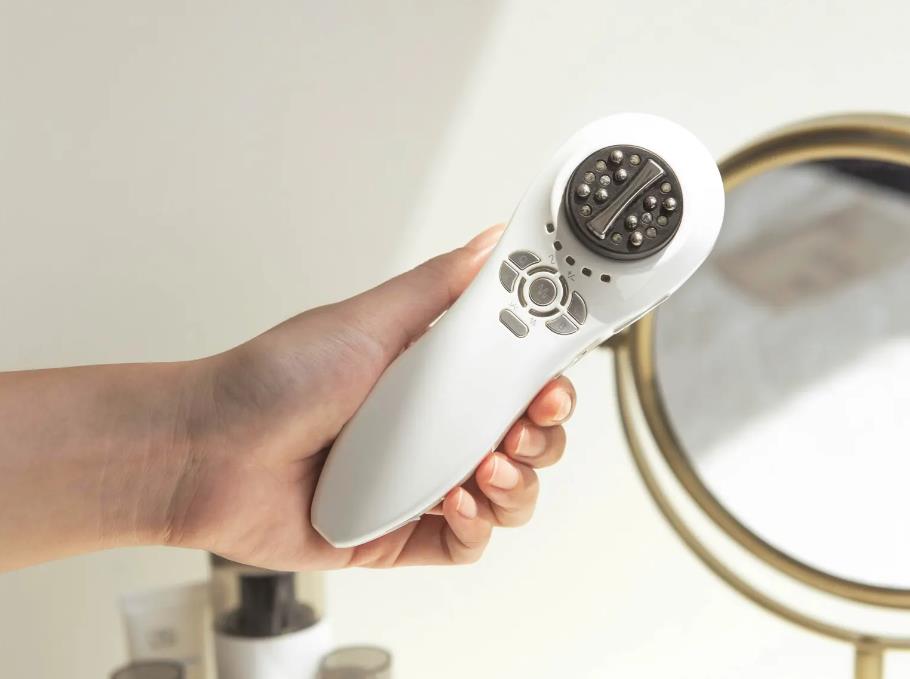The Emergence of Smart Beauty Tools
Smart beauty tools are at the forefront of this transformation, blending advanced technology with skincare practices. These devices leverage innovations such as artificial intelligence (AI), sensors, and data analytics to offer customized solutions and real-time feedback. As a result, they promise more effective, tailored skincare routines that can address individual needs with greater accuracy.
Intelligent Skincare Devices
One of the most exciting developments in this realm is the advent of intelligent skincare devices. These tools often come equipped with sensors that analyze the skin’s condition and provide personalized recommendations. For instance, some smart facial cleansers can detect skin type and condition through built-in sensors, adjusting their vibration intensity or cleansing mode accordingly. This ensures a deeper, more effective cleanse while minimizing potential irritation.
Moreover, smart skincare devices like the L’Oréal Perso system take personalization to the next level. This device uses AI to analyze users’ skin conditions and environmental factors to formulate custom skincare products. By combining real-time data with machine learning algorithms, Perso can create bespoke serums and moisturizers tailored to individual skin needs, thus optimizing the effectiveness of the skincare regimen.
Smart Beauty Gadgets for At-Home Treatments
At-home beauty treatments have become increasingly popular, and smart beauty gadgets are enhancing these experiences. LED therapy masks, for example, are now available with built-in smart technology. These masks use light-emitting diodes (LEDs) to target specific skin concerns such as acne, aging, or pigmentation. The smart versions come with sensors and timers that ensure optimal treatment duration and intensity based on the user’s skin condition.
Similarly, smart facial rollers and massagers have made their way into the beauty market. These devices often incorporate sonic vibrations or heated elements to enhance blood circulation, reduce puffiness, and improve product absorption. With integrated apps or digital interfaces, users can track their progress, adjust settings, and receive guided treatments tailored to their skin’s needs.
AI and Data-Driven Beauty Solutions
Artificial intelligence (AI) is revolutionizing the beauty industry by offering sophisticated data-driven solutions. AI-powered apps and platforms can analyze users’ skin through photos or video assessments. These platforms use deep learning algorithms to detect various skin issues such as wrinkles, blemishes, or uneven texture. Based on the analysis, they recommend personalized skincare routines and products.
For instance, apps like SkinVision leverage AI to analyze skin conditions and identify potential issues such as skin cancer. Users can take photos of their skin lesions, and the app evaluates the risk level, offering insights and suggesting whether a professional consultation is necessary. This preventive approach to skincare underscores the potential of AI in not just enhancing beauty but also safeguarding health.
Augmented Reality (AR) in Beauty
Augmented reality (AR) is another technological advancement that is making waves in the beauty industry. AR technology allows users to virtually try on makeup products before purchasing them. Apps like Sephora’s Virtual Artist or L’Oréal’s ModiFace use AR to superimpose makeup looks onto a live video feed of the user’s face. This not only helps users experiment with different products but also ensures they make informed choices based on how the products will look on their unique skin tone and features.
AR is also being integrated into skincare routines. Some AR apps can simulate the effects of skincare products, allowing users to visualize the potential benefits before applying them. This helps in understanding the impact of different ingredients and formulations, leading to more informed decisions about skincare purchases.
The Role of Big Data and Personalization
The use of big data in the beauty industry has paved the way for highly personalized skincare solutions. By collecting and analyzing vast amounts of data on skin types, environmental factors, and user preferences, beauty brands can develop products that cater to specific needs. Smart beauty tools often connect to apps that gather and process data over time, refining recommendations and treatments based on ongoing analysis.
For example, smart skincare routines that adapt based on seasonal changes, lifestyle factors, or even stress levels are becoming more common. These systems can suggest adjustments to your skincare regimen to address issues like dryness in winter or increased oil production in summer. This dynamic approach ensures that your skincare routine remains effective and relevant throughout the year.
The Future of Smart Beauty Tools
As technology continues to advance, the possibilities for smart beauty tools are virtually limitless. Innovations such as biometric sensors, real-time skin analysis, and even personalized ingredient synthesis are on the horizon. Future developments may include more integrated solutions that combine multiple functionalities, such as combining facial cleansing, massage, and treatment in a single device.
Additionally, the integration of blockchain technology for secure data storage and privacy is expected to play a significant role. As users become more concerned about their data security, ensuring that personal skincare data is protected will be crucial for the widespread adoption of these technologies.
Conclusion
The rise of smart beauty tools marks a significant shift in the beauty and skincare industry, driven by advancements in technology. From intelligent skincare devices and AI-powered solutions to AR applications and big data analytics, these innovations are transforming how we approach personal care. As these technologies continue to evolve, they promise to offer even more personalized, effective, and enjoyable skincare experiences. The future of beauty is not just about looking good but also about smart, data-driven solutions that cater to the unique needs of every individual.
